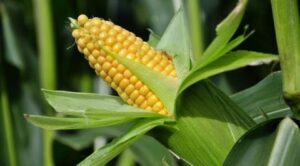
At the end of 2024, for the first time in Uzbekistan, imports of electric and hybrid cars outnumbered traditional gasoline cars. According to the Customs Committee, published by Gazeta.uz, 80,235 passenger cars worth $1.9 billion were imported into the country during the year. At the same time, this is 7% less in quantitative terms (-5,710 units) and 33.1% less in monetary terms (-$632.6 million) compared to 2023.
Imports of cars with gasoline engines decreased by 36.3%, amounting to 32,928 units (compared to 51,699 a year earlier). The cost of imports also decreased significantly – from $1.18 billion to $707.2 million (-40%). The share of gasoline cars in total imports decreased from 64.4% to 44.2%.
Imports of hybrid cars increased by 42%, reaching 17,480 units. Their total value amounted to $339.3 million, which is 17% more than in 2023. The share of hybrids in total imports increased from 15.3% to 23.4%.
Electric vehicles showed even more impressive growth: the number of imported cars increased 1.5 times, from 16,084 to 24,095 units. At the same time, their cost decreased by 48.2% to $224.8 million. The share of electric vehicles in imports increased from 20% to 32.3%.
The average cost of an imported electric car decreased almost threefold, from $26,972 to $9,330 (excluding VAT and customs duties). Hybrid cars also fell in price, but less significantly: the average price dropped by 17.6%, from $23,570 to $19,410. For gasoline cars, the decline was only 6%, from $22,858 to $21,476.
The growing demand for environmentally friendly vehicles is being stimulated by tax and customs incentives. Imports of electric vehicles are exempt from excise duties, customs duties, and road tolls. Taxi drivers using electric and hybrid vehicles are exempt from license fees until 2030. Entrepreneurs are entitled to benefits for the installation of charging stations, which will be introduced in 2023.
In addition, the registration of electric vehicles and hybrids is cheaper than that of gasoline cars. For example, the cost of registering an eco-friendly vehicle is 1.5 BRV, while for gasoline cars it is 6.84 BRV.
Problems with LPG refueling and the high cost of gasoline also contribute to drivers’ switching to electric vehicles. As a result, the share of eco-friendly vehicles in imports reached 55.8% (33,564 units), exceeding the share of gasoline cars (44.2%, 32,928 units).

Corteva Agriscience, an international agricultural research company, has increased the number of Pioneer® corn seed hybrids grown on the production fields of the company’s seed complex in Poltava region by 2.6 times to 24, according to a press release.
According to the report, the portfolio of Ukrainian corn seeds in 2024 will include hybrids of the Pioneer Optimum AQUAmax line.
In addition, in 2023, the seed team began growing corn hybrids popular in the European Union markets, as its long-term production strategy in Ukraine is to increase the share of exports to the EU.
The company reminded that in 2022 Corteva increased its exports to the EU 16 times.
In the current season, according to the company, 80% of seed crops were grown on irrigated fields, and 15% of the crops were grown using StripTill technology, which helps to preserve soil moisture and prevent erosion. Precision farming was introduced on more than 80% of the production area. A system of differential crop density was introduced.
“During the 10 years of operation of Corteva’s seed complex in Ukraine, everything has been done to provide farmers with high quality seeds of Ukrainian production. (…) We are convinced that seed production in Ukraine has a great future and Corteva strives to be a leader here,” Oleksiy Turchynov, Head of Production in Ukraine at Corteva Agriscience, was quoted by the press service as saying.
The company’s seed complex in Poltava region was officially opened in June 2013. More than $56 million was invested in its construction. The annual capacity of the plant is about 500 thousand sowing units of corn seeds and 250 thousand sowing units of sunflower seeds.
Corteva Agriculture is a global agricultural company. It offers comprehensive solutions to maximize yields and profitability. It has more than 150 research facilities and more than 65 active ingredients in its portfolio.
The company’s presence in Ukraine includes the headquarters in Kyiv, a research center in Liubartsi village (Kyiv region) and a seed production complex opened in 2013 in Stasi village (Poltava region).
In April 2022, the company decided to leave the Russian market due to the full-scale war against Ukraine unleashed by Russia.